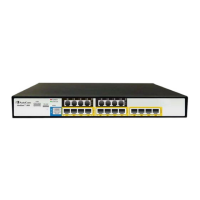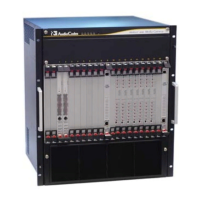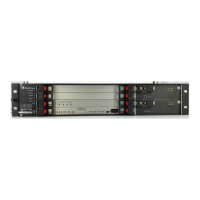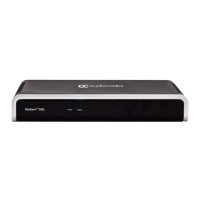Version 6.2 669 February 2011
SIP User's Manual 12. Configuration Parameters Reference
Parameter Description
9 (2) 'General Security Settings'
9 (3) 'Configuration File'
9
9 (5) 'Software Upgrade Key'
9
9 (7) 'Web Access List'
9 (8) 'Web User Accounts'
[naa] Non Authorized Access = Attempt to access the Web
interface with a false or empty user name or password.
[spc] Sensitive Parameters Value Change = Changes made to
sensitive parameters:
9 (1) IP Address
9 (2) Subnet Mask
9 (3) Default Gateway IP Address
9 (4) ActivityListToLog
[ll] Login and Logout = Every login and logout attempt.
For example: ActivityListToLog = 'pvc', 'afl', 'dr', 'fb', 'swu', 'ard', 'naa',
'spc'
Note: For the ini file, values must be enclosed in single quotation
marks.
[FacilityTrace]
Enables ISDN traces of Facility Information Elements (IE) for ISDN call
diagnostics. This allows you to trace all the parameters contained in
the Facility IE and view them in the Syslog.
[0] Disable (default)
[1] Enable
Note: For this feature to be functional, the GWDebugLevel parameter
must be enabled (i.e., set to at least level 1).
12.3.3 Remote Alarm Indication Parameters
The Remote Alarm Indication (RAI) parameters are described in the table below.
Table 12-14: RAI Parameters
Parameter Description
[EnableRAI]
Enables RAI alarm generation if the device's busy endpoints exceed a
user-defined threshold.
[0] = Disable RAI (Resource Available Indication) service (default).
[1] = RAI service enabled and an SNMP
'acBoardCallResourcesAlarm' Alarm Trap is sent.
[RAIHighThreshold]
High threshold percentage of total calls that are active (busy endpoints).
When the percentage of the device's busy endpoints exceeds this high
threshold, the device sends the SNMP acBoardCallResourcesAlarm
alarm trap with a 'major' alarm status.
The range is 0 to 100. The default value is 90.
Note: The percentage of busy endpoints is calculated by dividing the
number of busy endpoints by the total number of “enabled” endpoints
(trunks are physically connected and synchronized with no alarms and
endpoints are defined in the Hunt Group Table).

